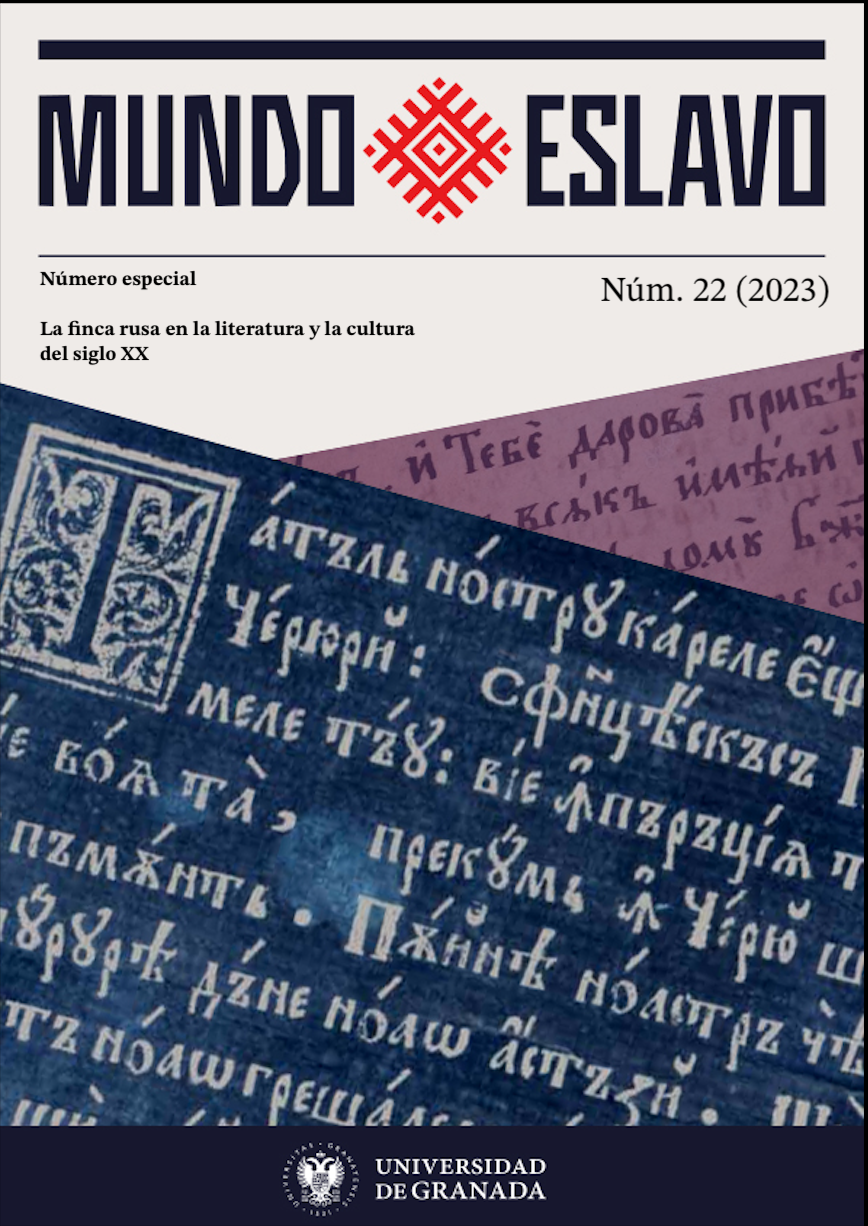Estate Text in Independent Russian Poetry as an Effect of Transition from Typewriter to Computer
DOI:
https://doi.org/10.30827/meslav.22.25204Resumen
Russian independent poetry of the late Soviet and post-Soviet periods, inheriting modernism, the avant-garde, and the neo-avant-garde, was attentive to the medium of production, so that the transition from the manuscript to the typewriter or from the typewriter to the computer changed both the topoi and the rules of plot organization. This is why our attention to the theme of the Russian estate was not aimed at the idealization of Russia’s aristocratic past, but at a comprehension of the estate as a medium for the production of meanings. The estate was understood as a generator of aesthetic ideas, moments of spontaneity of this generation were emphasized, it was regarded not as a part of the landscape, but as an idealized point of consideration for nature and culture. The depiction of the homestead as an integral organism had to break down the system of filters to which the Soviet production of texts in the office of the author and in the publishing house was subjected. I argue that the general subject of the poems about the homestead is the collision between the matter of memory and the medium of the material production of texts. Some of the metaphors in Russian poetry associated with homesteads are complex, but they become clear when understood as part of the correlation of the material content of memories (nature as landscape; culture as a set of associations) with the medium of production (self-typing as giving historical depth to the dictionary; using computer layout as constructing the space of impressions and bringing text and paratext closer together). I consider how the paratexts of Russian postmodern poets such as Olga Sedakova, Dmitry Bushuyev, Alexei Parshchikov were integrated into texts, contributing to the formation of Russian postmodern lyrical prose, Arkady Dragomoshchenko, Vasily Kondratyev and others. At the same time, in lyrical prose appeared the disgusting underside of manor life, which was not present in the theatrical entourage of poetry, where the idealization of the manor corresponded to the setting of the text above the paratext.
Descargas
Descargas
Publicado
Cómo citar
Número
Sección
Licencia
Derechos de autor 2023 Mundo Eslavo

Esta obra está bajo una licencia internacional Creative Commons Atribución-NoComercial-CompartirIgual 4.0.
Los autores conservan los derechos de autor sobre sus trabajos y garantizan a la revista el derecho de ser la primera publicación del mismo. Los artículos se publican bajo la licencia Creative Commons Atribución-NoComercial 4.0 Internacional (CC BY-NC-SA 4.0), lo que permite a los lectores y otros investigadores copiar, redistribuir, remezclar, transformar y construir a partir del material, siempre que se respeten las condiciones establecidas.













